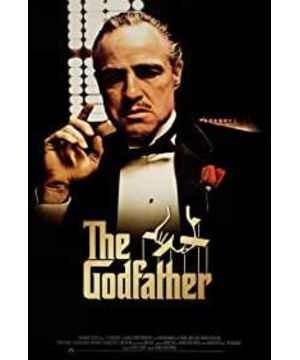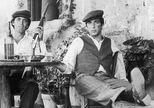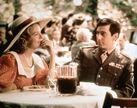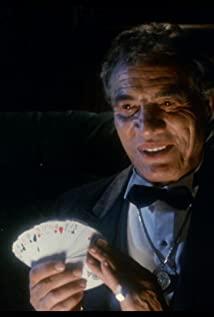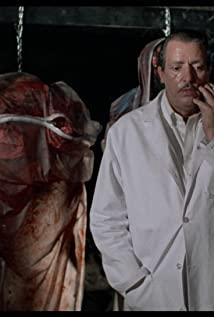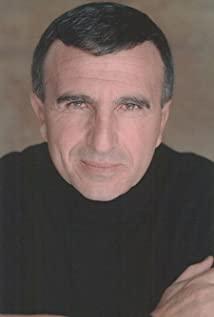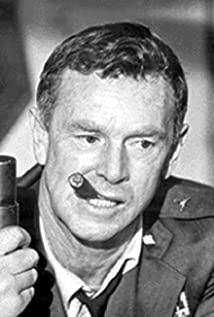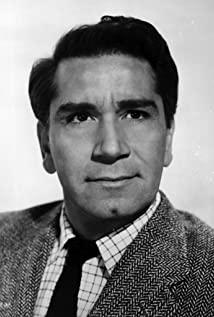The screen was dark, and we heard a voice with a strong Italian accent saying: "I believe in the United States, the United States gives me wealth, and I raise my daughter in the American way..." A man's face appeared from the darkness, the camera Move back. The man continued to tell the scene of his daughter being raped, the camera slowly moved back, a corner of the study appeared on the screen, and then half of the head and shoulders of the godfather Corleone gradually appeared from the left of the screen, facing away from the audience. In the shadows... a reverse shot, the picture turns from dark to bright, the godfather sits at the desk, listening to the man's words, while stroking the kitten in his arms.
"The Godfather" starts with this three-minute moving camera, filling the narrative space with a sense of mystery. In contrast to the traditional narrative structure, Coppola does not need to explain the time and space of the camera. Instead, it uses a backward camera that generally indicates that the film is about to end, making the audience full of suspicion and expectation.
The scene moved from indoor to outdoor, showing a cheerful wedding scene. Coppola cleverly cross-edited the interior of the study and the wedding scene. This passage shows the two levels of the underworld family: inner and outer. The inner layer is made up of men, and the godfather is in a dominant position. All decisions are made in this circle. This is a closed strange circle. The doors and windows of the godfather's study are closed and the light is dim, which is the external manifestation of this closedness. The outer layer is composed of women and children. Weddings and banquets, love and sex, wealthy and joyful; the wedding is held in the sunny garden, in contrast to the study, it is an open space. A family and two levels are the basic structure of the whole film, and the storyline is developed around this structure.
The outer layer is happy, cheerful, and safe, and it is guaranteed by the inner layer. At the same time, the warmth and joy of the outer layer provides the best cover for the organized criminal activities of the inner layer. There are of course contradictions in the outer family life, sometimes very sharp. Connie and Carlo have frequent conflicts in their married lives, so that Sonny is assassinated for his sister, and Michael strangles Carlo to avenge his brother. But judging from the overall structure of the film, the violent behavior caused by the contradictions within the family did not weaken the protective role played by the outer layer.
The inner-level activities can be summed up as murder, and the purpose is for money and power. This is the basic feature of gangster movies. But the difference in this film lies in the portrayal of the gang bishop's father. The Godfather was first portrayed as an elder who upholds justice, never indiscriminately killing innocents, and often has a reason when he has to use violence. In order to avenge the humiliated daughter, the wealthy funeral dealer asked his godfather to get justice after he failed to resort to the law and the police for help. A rich man who never knew the godfather, but pinned his hopes on the godfather, this stroke is very important in characterizing, and it broke the inherent image of the triad leader in our minds. The film repeatedly shows that the godfather is well-planned, considers the overall situation, is tasteful, and is loyal to friendship. The cumulative effect of each scene makes the godfather beautify. A triad leader who started with violence and black money has become a humanitarian who upholds justice. Of course, he has drawn sharp criticism from critics. But from an artistic point of view, this pen is a success. It frees the image of the godfather from formulaic descriptions. The godfather upholds justice still not without violence, which is back to our original theme: the underworld and violence are twin brothers. The film uses many passages to describe in detail how the godfather and his son use violence to achieve various goals and the violent struggles between the mafia families for power.
The godfather sent Hagen to take care of it in order to make his son Fontaine the leading role in the movie. At this time, the lens is rotated and moved from indoor to outdoor. The wedding continued, and the godfather was dancing happily, as if he knew nothing about the terrible atrocities that were about to happen and planned by him. Tom first salutes and then fights, persuading Walz to fail, resorting to the usual threats of the underworld. Walz found a bloody horse's head in the blanket, and several close-ups showed his horrified expression. The camera cuts to the outdoors, Waltz's pet, a closely guarded racehorse worth 600,000 dollars, was killed, and the horse head was unknowingly placed on the same tightly protected Waltz bedroom bed. This is Collet The important passage in which the Ang family demonstrates its power through violence has a terrifying and mysterious atmosphere. Then, turning into a close-up of the godfather, raising his eyebrows, he said to Tom, "Is it tired?" Tom replied, "I'm not tired, I fell asleep on the plane." No need to say a word, the godfather fulfilled his promise. Fontaine takes the lead, and the cruelty, cruelty, mystery, and treacherousness of the underworld are all at a glance. The simplicity of Coppola's narrative is an example.
The above paragraphs are directly taken from the original work. Coppola vividly presented this bloody scene in front of the audience in a concise way through the language of the film, which produced a strong screen impact, which shocked us. If this passage shows the cruel side of the godfather, then he is willing to risk his life and refuse to use money and political influence to support other families in the drug trade, which also shows that he has a certain sense of social responsibility, and this has broken the frame of gangster movies. . As a result, the godfather was murdered and almost died.
The assassination of the godfather was a turning point in the changes in the power structure of the Corleone family, and it was also a sign of the decline in power of the family. This incident caused Michael, who had never been involved in family affairs, to get involved. The hospital passage embodies the relationship between father and son, and at the same time fully demonstrates Michael's calm, witty and courageous qualities, which paved the way for him to inherit his father's business. It is true that calmness and tact and bravery alone are not enough. Only cruelty and cruelty are the necessary conditions for the godfather. A scene in which Michael planned to kill the bribed police officer and Solorzo vividly shows that Michael is better than his father: Michael and the two have an appointment to meet at a hotel, and neither of them bring weapons. During this time, Michael used the excuse to go to the toilet and took it out and hid it in the water tank. The pistol in the middle of the room returned to his seat quietly, taking advantage of the fact that the other party was unprepared, suddenly drew the gun to kill the two, and then calmly left the hotel. This is Michael's first murder for revenge, just like his father killed Fanussi when he was young, indicating that Michael will become the heir to his father's business.
Michael temporarily returned to Sicily. This return was both a refuge and a root search, giving Michael a chance to understand the family's past. Soon after arriving in Sicily, he fell in love with a beautiful rural girl and got married. Just as he was intoxicated in a happy married life, a bomb exploded in his car. Although he survived the disaster, he became his beloved wife. scapegoat. This incident was a great excitement for Michael and was a turning point in his life. He realized that although the world is big, he has no safe place. Since then, he has become more ruthless, determined to eliminate the enemies of his family one by one, and re-establish the status and authority of the Corleone family in the underworld with violence.
From the Sicilian passage, Michael became the main body of the film's narrative, while the godfather took a back seat. Among the three sons, the godfather admires Michael the most, and he has long planned to let him inherit his own business. This has been hinted at at the wedding at the beginning of the film. When the whole family stood ready to take a photo with the bride and groom, the godfather found that Michael hadn't arrived, and said, "Without Michael, I won't take pictures." The "family portrait" was not taken until Michael joined in.
The godfather negotiated an agreement with the five mafia leaders to stop the civil war. At the meeting, he made concessions and agreed to use his family's political relationship to shelter the drug trade of other families in exchange for Michael's safe return to New York. Soon after Michael returned to New York from Sicily, he took over from his father and exercised the power of godfather. The conversation between father and son is not only a transfer of power, but also a show of affection. Here, Coppola uses a long shot: his father is on the right, narrating his life affectionately to Michael, and he asks Michael to be independent like him, to become a strong and dominate others. But he warned Michael to be cautious and not to act hastily. This conversation marked an important turning point in the family relationship. With the change of power, the original warmth among family members will be replaced by indifference.
The final montage of the film focuses on Michael's hypocrisy and brutality. Baptism and assassination shots alternately switch (Michael and his wife stretched out their hands to untie the caps on the children’s heads, cut to one hand and stretched out the automatic rifle; the priest reached out to touch the children’s head, and cut to the other hand to pull the pistol out of the holster), Under the cover of baptism, the assassinations were carried out accurately as planned, and the leaders of the five mafia families were killed one by one. While the massacre was going on, the pastor's question and answer with Michael was extremely ironic. The pastor asked: "Are you going to cast aside Satan?" The scene cuts to Clementha killing the mafia leader in the elevator with an automatic rifle, then cuts back to Michael and replied: "I really want to cast aside Satan," cut to another The Mafia were killed...At this time, the corpse of the deceased had become Michael's passport to the kingdom of secular power. The bloody massacre under the cover of the sacred cloak was the first organized large-scale criminal activity after Michael took control of the family power. It marked the death of the old family represented by the old Corleone and the birth of the new family represented by Michael.
The end of the film is meaningful. Michael lied to his wife Kay that he was not a murderer, and then his wife left the room. We saw Clementa and others come in, and then bowed their heads and kissed the ring on Michael's hand in turn. The door slowly closed, shutting Kay outside the door, and shutting the audience outside. This level is meaningful: Kai and the audience are ignorant of the indoor situation. This treatment is consistent with the basic structure of the film-a family with two levels. The film ends after leaving a question mark to the audience.
The narrative of "The Godfather" (hereinafter referred to as the first episode) adopts a sequential structure of time and space, while the sequel adopts an interleaved structure of time and space. The first episode organizes the time and space of the plot according to the natural sequence of the event process to advance the plot, while the sequel breaks the natural sequence of time and space, and combines different time and space scenes according to the director's artistic conception to organize the plot and promote the development of the plot. . There was no flashback in the previous episode, and the story progressed linearly. The narrative space was dominated by the Godfather’s mansion on Long Island, New York. The camera only left New York three times (Los Angeles, Sicily, and Las Vegas), which took up 29 minutes in total. The sequel keeps flashing back, and there are five flashback paragraphs. Sicily, Italy, Lake Tahoe in Nevada, Little Italy in New York, Miami Beach, Havana, Cuba, and Washington, D.C., the narrative space is constantly changing, combining past and present, memories and associations, expanding the concept of time and space, and showing more The layers of time and space constitute a unique narrative format, which has achieved remarkable artistic effects.
When Coppola was shooting the sequel, he treated the first episode as an integral part of the structural factor. Therefore, when analyzing the narrative structure and connotation of the sequel, the first episode must be taken into consideration.
The beginning of the sequel was a close-up. We saw Michael a few years later, with a cold expression on his face, and a mafia guy bowed his head and kissed his right hand, and the picture gradually darkened. This shot serves as a link between the previous and the next: the previous episode ends with Clemens kissing the ring on Michael's hand, and the sequel starts with a mafia kisses Michael's right hand; the next episode-after the screen fades, it symbolizes Collet The armchair of the Ang family's power appears in close-up shots, waiting to be empty. In fact, this power has been handed over to Michael, and Michael is already the owner of this top spot. Subtitles then appeared, taking the audience back to Sicily in the early 20th century (1901), and the first flashback paragraph began. After that, the film went through several flashback passages (past tense)-in Little Italy in New York in 1917, in New York City in 1918, in Sicily in the mid-1920s, and celebrating the birthday of Vito in 1941, etc.-and Michael Nangquan ( The main lines of the present tense are cross-edited together, not only narrating the history of the brutal killing of Widow’s relatives, reviewing his escape from his hometown and using violent means to ascend to the throne of the mafia godfather, but also exposing the United States through intricate interpersonal relationships. Corruption in society (with bribery police officer McCloskey and Senator Gilley as typical examples), the history of the rise and fall of the Corleone family is examined in the context of a large society like the United States.
From the perspective of characterization, the film dialectically examines the differences in the personality of the father (Vido) and the son (Michael), the different attitudes of life, and the way to the throne of the godfather through the method of contrast (the first episode is an important structural factor here). Although as a mafia leader, the use of violence is a feature shared by both father and son, in Coppola’s lens, Corleone Sr. is cruel and benevolent, and the narrative focuses on showing his benevolent side, Xiao Ke Leon is both cruel and tender, and the focus of the narrative is to show his cruel side; although both of them use the outer layer of the family to cover up their violence, the family life surrounding the old Corleone is colorful and tender. , And the family life surrounding the little Corleone is boring, indifferent and ruthless; although both father and son are on the throne of the godfather, the old Corleone is from a poor child, relying on his own struggle, through violent means to obtain the godfather Power; while the young Corleone was pampered since childhood, graduated from university with his father's money, became a soldier, and was valued by his father, and took over the power of the godfather. The life of the old Corleone is the history of the rise and fall of the Corleone family. When he took the initiative to hand over power to Michael, it was when the Corleone family was on the defensive in the power struggle of the underworld. His final reward after getting rid of the power struggle is a peaceful life and family happiness. At the end of the first episode, the scene of the sudden death of Corleone and his grandson while playing in the vegetable garden should be said to be the ideal destination of the triad leader. Michael is young and vigorous. His first action after taking power was to use violence to eliminate the enemies of the Corleone family one by one after careful planning, making himself the most powerful godfather of the Mafia families again. Then a series of actions were taken to consolidate this power and expand the territory to other cities, even to Havana in Cuba. However, as Ibsen revealed in his famous play "The Enemy of the People", "the strongest is the loneliest", when Michael becomes the strongest in the underworld, that is when he is the loneliest.
Michael's loneliness is concentrated in his family relationships. The following scene illustrates this through a comparative montage: Michael's life is threatened, and he decides to leave home for a while. Before leaving, he did not say goodbye to his wife, reflecting the indifferent relationship between husband and wife. Here, Coppola used a set of close-up shots to depict the scene of him kissing his son goodbye. Then the picture slowly changed from the right to the young Widow. At this moment a bright lamp appeared on Michael's head, and Victor's wife entered the painting. Next comes the subtitles: Vido Corleone was in New York in 1971. Once again into the home of Widow and his wife, Widow walked to the stroller and picked Sonny to kiss. A small family of three people, loving couples, family harmony, the picture is lyrical. The warmth and simplicity of the family in the past are in sharp contrast with the indifference and complexity of the current family.
The departure of his wife made Michael feel lonely and painful. The combination of Kay and Michael was reluctant. Kay didn't like Michael's family, which cast a shadow on the relationship between the two from the very beginning. At the end of the first episode, the door of the room was slowly closed and Kai was shut outside, which paved the way for the final rupture of the relationship between the two of them. In the sequel, as Michael's desire for power continues to expand, the gang violence continues to escalate, and even Kai's personal safety is threatened. The conflict between the two deepens, and finally their relationship breaks down and they have to break up. In a scene of the breakup, Kay clearly told Michael that she did not have a miscarriage but had an abortion. She is unwilling to have children for Michael to inherit the evil business of the Corleone family. She said: "Everything should be over." Michael beat Kay in rage and drove her out of the house. Later, Kay went home to visit his children and unexpectedly met Michael. When Kay went out, Michael closed the door coldly. The closing of the door this time shows that the relationship between the two has been completely broken, and there is absolutely no possibility of a reunion. Michael's loneliness was also deepened by the betrayal of his brother Fredo and the betrayal of his family friend Pentangeli. In the film several times, he used panoramic shots to show him walking back and forth alone in the huge living room or staring into the distance alone in front of the window.
At the end of the film, in a middle shot, we see Michael sitting alone outside the luxurious mansion, pushing it into a close shot. His eyes are dull and depressed. Money and power did not bring happiness and harmony to Michael. The departure of relatives, the betrayal of his elder brother, the death of his mother, and the lonely self are the best portrayal of Michael's situation here and now, and also herald his unfavorable future.
View more about The Godfather reviews


